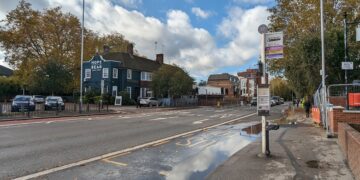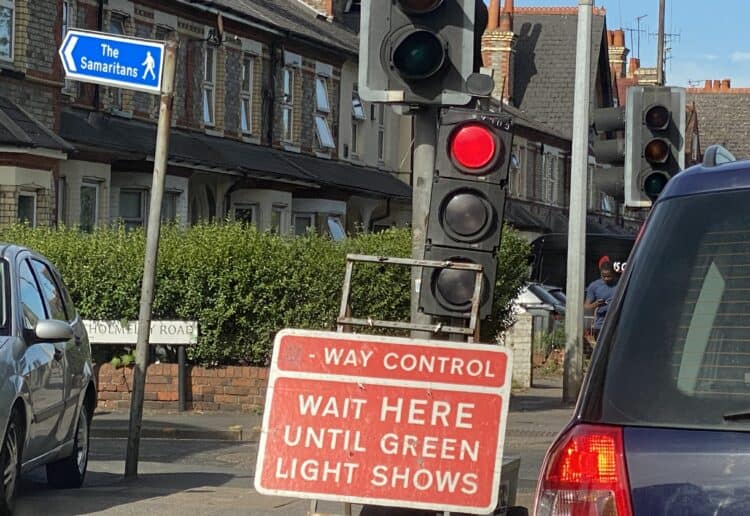NEWTOWN residents are hoping it will soon be green for go for installing replacement traffic lights.
An accident knocked out the lights at the junction of Cholmeley Road and London Road several weeks ago, and since then temporary beacons have been in place.
They have been a bone of contention for motorists, with them failing several times over the weeks, while also causing tailbacks on the London Road that reach Cemetery Junction and the Suttons Seeds roundabout, even out of peak times.
But the broken lights used an old-style controller which was destroyed and a like-for-like repalcement is no longer available, and the council said that the configuration in use could not replicated with the newert ones.
As a result, the junction’s equipment needs to be replaced lock, stock and barrel.
The work includes clearly ducts and replacing damaged cables.
However, there is a lead time of 20 weeks to get the equipment needed, meaning the works might not be completed until October.
The leader of the main opposition group on Reading Council is Park ward cllr Rob White.
The Green party politician said: “Unfortunately the controller for these traffic lights was driven into getting on for two months ago.
“Green councillors raised this with the council as soon as we were made aware.
“Unfortunately the temporary lights have been turned round on multiple occasions stopping them from working and making the junction dangerous.”
He wanted Reading Borough Council to take action to remedy the situation.
“The council needs to do everything it can to get these lights fixed as soon as possible,” he explained.
“The Labour-run council should be updating older traffic lights in a planned fashion rather than reactively.
“This would mean that the traffic lights would be out of action for far less time. Green councillors will keep pushing for action on road safety.
“We want to see a fairer, greener and cleaner town.”
A spokesperson for Reading Borough Council said: “Unfortunately, a road traffic accident damaged the existing signals to an extent that they need to be completely replaced.
“In the interim temporary signals are in place which are never ideal as they are not linked to wider area detection and traffic monitoring systems the same way permanent signals are
“In order to try and lessen the impact the temporary signals are being manually operated in peak times, which means traffic flows can be monitored and waiting times altered accordingly.”
They added: “The lead-in time for the suppliers to supply the required replacement signals could be up to 20 weeks at this time.
“This is, of course, far from ideal, but it is an industry wide delay at present.”
“In the meantime, a Council team is on site to complete preparatory works so that when the new equipment arrives it can be installed without any further disruption or delay.”
























